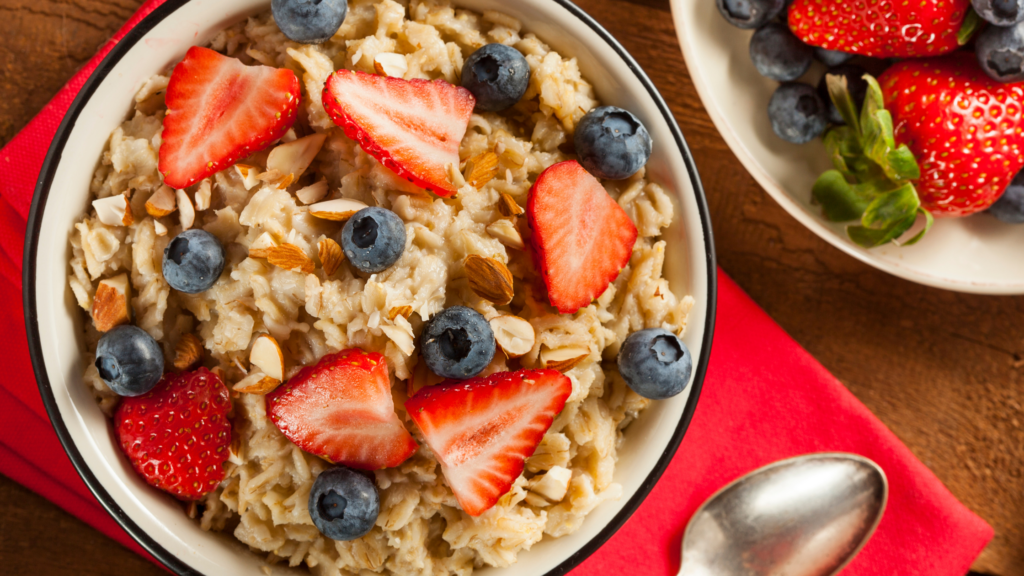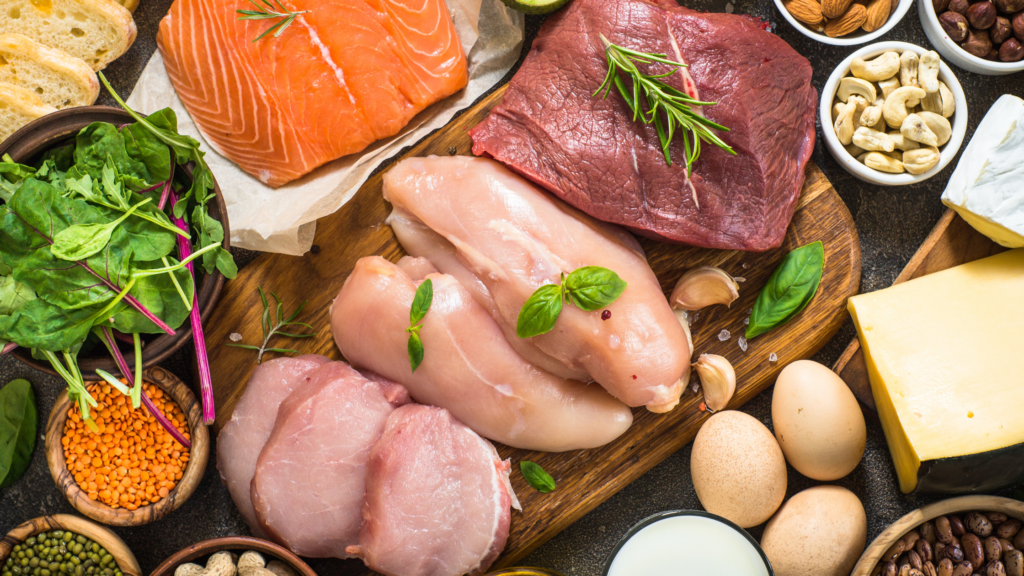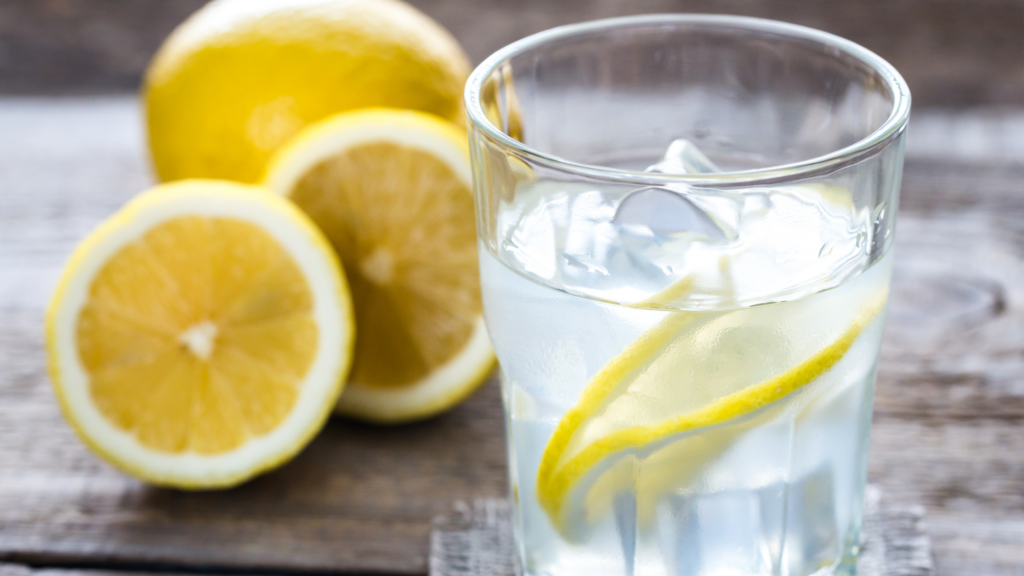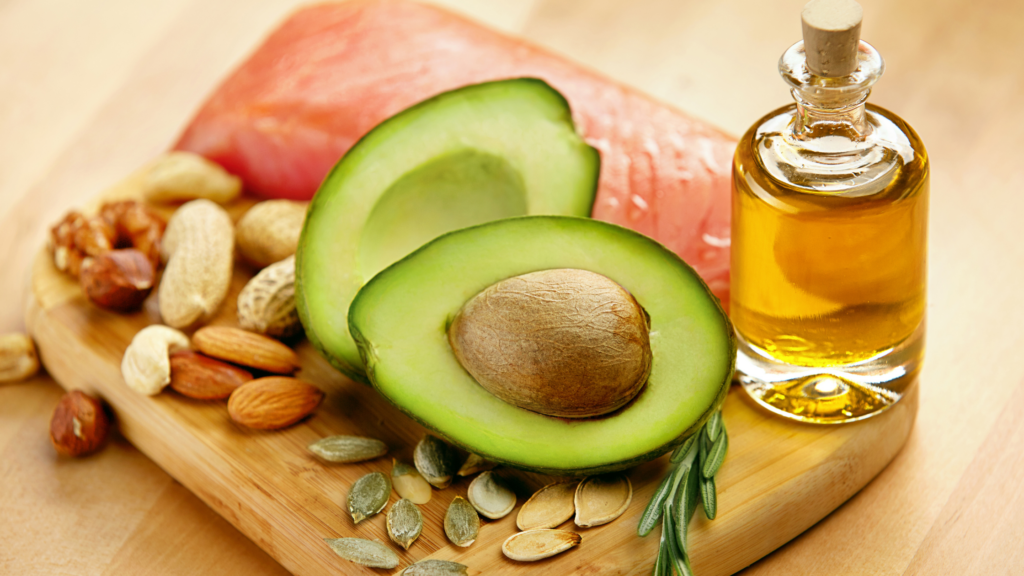Do you love pushing your body to its limits through running – and wonder how much more you could achieve if you zeroed in on your ultra running nutrition?
Whether you’re training for your first 50K or are a seasoned ultramarathoner, getting your nutrition dialed in can be the key to maximizing performance, preventing injury, and speeding up recovery between training sessions and after a race.
In this post, I’ll share essential ultra running nutrition tips, including pre-run fueling, what to eat during training, and post-run recovery strategies to keep you strong as you go the distance!
Carbohydrates: The Essential Fuel for Ultra Runners

Carbohydrates are a primary fuel source for ultra runners, but managing intake to support endurance without crashing is crucial.
How to Manage Your Carbohydrate Intake
- Pre-Run: Start with a carb-rich meal 3-4 hours before a long training run or race. Consider oatmeal with bananas and honey, or a bagel with almond butter and jam.
- During the Run: For runs over 60 minutes, aim to consume 30-60 grams of carbs per hour. Try easily digestible options like energy gels, chews, or sports drinks.
- Post-Run Recovery: Replenish glycogen stores by consuming carbs within 30 minutes of finishing your run. A smoothie with banana, berries, and a scoop of protein powder can be an ideal option.
Protein for Muscle Repair and Recovery

Ultra running stresses muscles, making protein essential for repairing tissue and preventing muscle breakdown.
How Much Protein Do You Need?
- Daily Requirements: Aim for 1.2-2.0 grams of protein per kilogram of body weight, depending on your weekly mileage.
- Post-Run: After a long run, consume a protein-rich snack within 30-60 minutes. Options like a protein shake, Greek yogurt with berries, or a handful of nuts and jerky are convenient and effective.
- Evening Meal: Include a protein source in your main meals, like chicken, tofu, or legumes, to support overnight muscle recovery.
Hydration and Electrolytes: Avoiding Dehydration and Cramping

Staying hydrated is essential, yet ultra runners lose more fluids and electrolytes than standard runners, making it crucial to focus on both water and electrolyte intake.
Tips for Staying Hydrated
- Pre-Run Hydration: Begin your runs hydrated. Drink 500-750 ml of water in the 2-3 hours leading up to your run.
- During the Run: Carry a hydration pack with water or an electrolyte drink. Sip consistently, aiming for 400-800 ml per hour depending on conditions.
- Electrolyte Balance: Sodium, potassium, and magnesium are vital for muscle function. Consider an electrolyte supplement or drink mix, especially on longer training runs and races.
Fats: The Long-Burning Fuel Source

Fats provide a slow-burning energy source essential for ultra running. However, they are best suited for steady, long-duration efforts rather than quick energy needs.
Best Fat Sources for Ultra Runners
- Pre-Run: Include a small amount of fat to stabilize blood sugar, like a slice of avocado on toast or nuts with a banana.
- During the Run: Nut butter packets or energy bars with healthy fats can provide energy without upsetting your stomach.
- Daily Intake: Include healthy fats in your diet with sources like olive oil, avocado, and nuts, which support sustained energy release and joint health.
Micronutrients and Supplements: Supporting Endurance and Recovery

Ultra running increases the demand for specific micronutrients that support endurance and muscle recovery, such as iron, calcium, magnesium, and vitamins D and B.
Key Nutrients for Ultra Runners
- Iron: Essential for oxygen transport in the blood. Iron-rich foods include spinach, beans, and red meat (for non-vegans).
- Magnesium: Supports muscle relaxation and recovery. Leafy greens, nuts, and seeds are excellent sources.
- Vitamin D and Calcium: Both are crucial for bone health. Dairy, fortified plant-based milks, and sunlight exposure help maintain these levels.
Consider periodic blood tests to check your micronutrient levels, especially if you’re experiencing fatigue or poor recovery.
Fueling Strategies for Long Runs and Race Day for Ultra Running Nutrition
Your race day nutrition should be tried and tested during training. Follow a strategy that helps sustain energy, manage hydration, and prevent gastrointestinal issues.
Example Race Day Nutrition Plan
- 2-3 Hours Before Start: Carbohydrate-rich meal like a bowl of oatmeal with fruit and nuts, or a sandwich with almond butter and honey.
- During the Race: Alternate between gels, sports drinks, and small, solid snacks like bananas or dates every 45-60 minutes.
- Electrolytes: Take electrolyte capsules if conditions are hot or if you are sweating heavily.
- Post-Race Recovery: Within an hour, consume a meal with a carb-to-protein ratio of 3:1. A burrito with rice, beans, and veggies or a smoothie with protein powder and fruits is ideal.
Common Nutrition Mistakes in Ultra Running (and How to Avoid Them)
Ultra running nutrition is a learning process, and even experienced runners make mistakes. Here are some pitfalls to avoid:
- Under-fueling During Training: Skipping fuel during long runs can lead to energy crashes and hinder performance gains.
- Trying New Foods on Race Day: Stick to foods and hydration strategies you’ve practiced during training.
- Neglecting Recovery Nutrition: Skipping post-run nutrition delays recovery and can lead to long-term fatigue.
- Ignoring Electrolyte Needs: Electrolyte imbalance can cause cramping, fatigue, and impaired performance.
Fueling for Special Dietary Needs
If you have dietary restrictions, finding fueling options can be a bit more challenging. Here’s how to tailor your ultra running nutrition if you’re vegetarian, vegan, gluten-free, or lactose-intolerant:
- Vegetarian/Vegan: Opt for plant-based proteins like lentils, beans, tofu, and nuts. For in-run snacks, try dried fruits, nuts, or vegan-friendly gels.
- Gluten-Free: Rice cakes, gluten-free energy bars, and naturally gluten-free grains like quinoa and rice are excellent options.
- Lactose-Free: Choose lactose-free protein powders, dairy alternatives, and whole foods like nuts and seeds for healthy fats.
The Benefits of Working with a Sports Dietitian for Ultra Running Nutrition

Getting ultra running nutrition right can be complex, especially with the unique demands of the sport. A sports dietitian can help you:
- Personalize Your Nutrition Plan: Tailor your fueling strategy to your individual needs and goals.
- Manage Nutritional Deficiencies: Test and supplement as needed to avoid long-term health issues.
- Optimize Recovery and Performance: Ensure that your nutrition supports your training demands and race goals.
Fueling for ultra running isn’t just about eating more—it’s about eating smarter. By planning your nutrition, staying hydrated, and prioritizing recovery, you can train harder, race better, and enjoy every mile on the trails.
As a sports dietitian and ultrarunner, I help ultrarunners plan out and optimize their sports nutrition inside the Flight Collective membership. Join me inside the membership and lets dial in your ultra running nutrition together!
Be The First To Comment